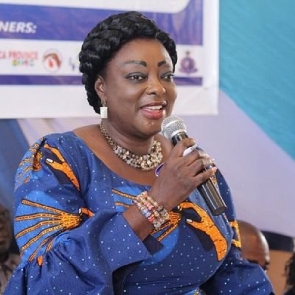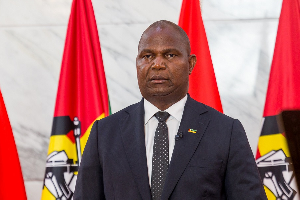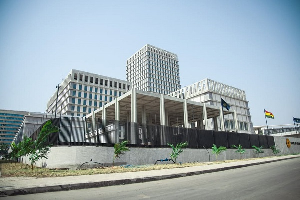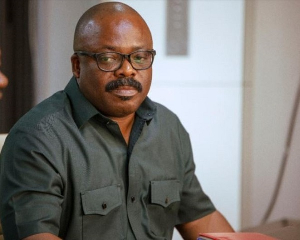Member of Parliament for Tano North, Freda Prempeh, has joined calls for the passing of an affirmative bill to defend women’s rights in the country.
According to her, many women are suffering behind the scenes in their relationships and marriages.
According to the lawmaker, there have been numerous allegations from married women whose spouses attempted sexual intercourse with them via the anus.
She went on to say that some of these women were afraid to speak up about their experiences.
She said this when some chiefs and queen mothers from the Bono and Ahafo traditional areas visited parliament to commend the Rt. Hon. Speaker Alban Sumana Kingsford Bagbin and members of Parliament for their firm position on the need to pass the anti-LGBTQ+ bill.
According to her, the activities of the LGBTQI+ community are against the cultural, moral and religious values of the country.
She said that under no circumstances should we ever consider these practices because society frowns on them and it was not good for our health.
In accordance with the 1992 Constitution, attempts have been made since 2011 for the nation to pass an affirmative action (gender equality) law.
Unfortunately, President Nana Addo Dankwa Akufo-Addo’s pledge to ensure the passage of the Affirmative Action Bill into law in his first State of the Nation Address in 2017 has not been kept.
In 1960, Ghana legislated an Affirmative Action Act which allowed ten women members to represent the regions of the country in the then legislature.
The law recognised that women’s political participation was a critical component of democratic dialogue and social cohesion.
Women’s representation in all policy-making spaces in Ghana stands below the United Nations (UN) threshold of 30 per cent.
Currently, women’s representation in Ghana’s Parliament stands at 14.5 per cent, while in the District Assembly System, below five per cent.
The MP believes that the bill’s passage will assist bridge gaps and address inequality and gender disadvantages.
She urged traditional leaders to spearhead campaigns to have the bill enacted into law as well.
She is also optimistic that her female colleagues will support the bill’s approval.
General News of Thursday, 13 July 2023
Source: rainbowradioonline.com













